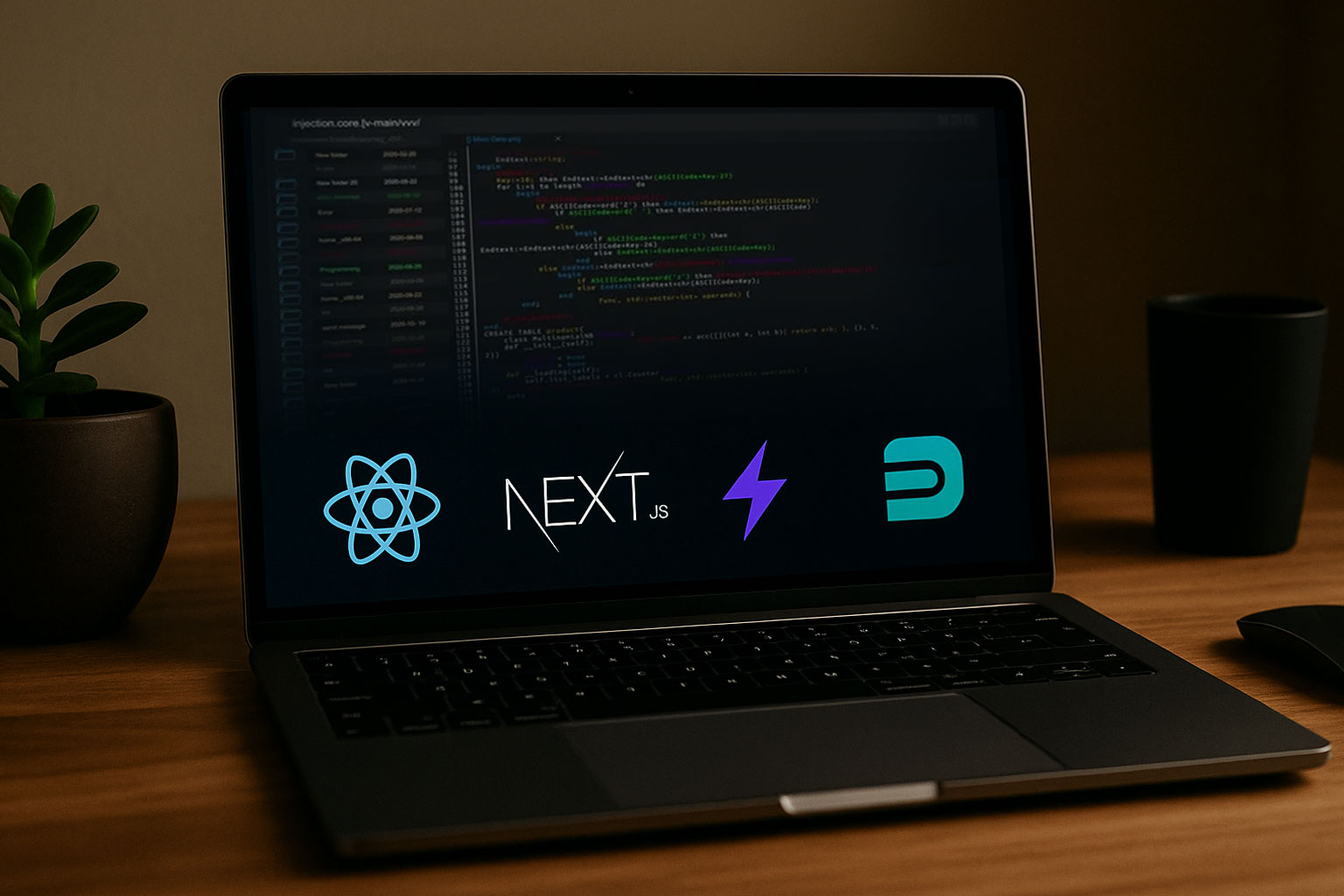Will AI Replace Coders in 2025? The Future of Programming Jobs & Smarter Developers Explained
.jpg)
22 Sep 2025
The answer that every developer will be thinking of in 2025 is quite straightforward, yet disturbing: Will AI displace coders?
The development of modern AI-based coding tools, such as GitHub Copilot and ChatGPT, and even specialized AI-assisted development systems, is now a burning subject to be discussed within the tech communities. On the one hand, optimists consider AI to be a second pilot, a chance to be more productive and reduce redundant labor. On the other hand, some people are terrified of the fact that coding jobs will be phased out, and programmers will be made jobless within several years.
In this blog, we will discuss whether AI will replace coders in 2025 or not. We will further discuss the future of the development as a field, the importance of AI in software development, and whether it is still worth learning to code in 2025.
The AI Coding Landscape in 2025
Five years later, AI-generated code was bulky and usually unreliable. In the future (2025), tools such as GitHub Copilot X, Tabnine, and ChatGPT-5 will become usual helpers in the development process.
These AI coding assistants can:
- Suggest code snippets in real-time.
- Detects bugs and vulnerabilities faster than manual review.
- Auto-generate documentation and unit tests.
- Even scaffold full applications based on prompts.
Developers are not required to go back to basics when it comes to many of the tasks they are used to. They work together with AI systems that do the boring part, instead, and humans deal with complicated architecture, problem-solving, and innovative creativity.
However, is it necessarily the case that AI will completely supplant software engineers in 2025?
Will AI Kill Coding Jobs?
This is the fear of most of the entry-level coders and computer science students. When AI is in the position of creating a complete block of code, then why would a company spend money on junior developers?
The thing is that AI is not going to replace developers, but it can replace certain tasks.
Jobs at Risk:
- Boilerplate coding (repetitive setup tasks).
- Basic debugging and syntax correction.
- Documentation writing.
Jobs Evolving:
- Large application system architects.
- Security engineers who make sure that AI-generated code is not dangerous.
- Product-oriented developers who convert user requirements to technical solutions.
The effects of AI on the developers are dependent on the flexibility of the developers to a great extent. The ones that adopt AI are becoming more efficient, more valuable, and faster. The resisting people are at a greater risk of being left behind.
Human vs. AI Developers: A Symbiotic Future
In a human vs. AI developers comparison, it is obvious that both of them imply some advantages:
- AI builders are also good at rapidity, pattern recognition, and automation of software engineering.
- There is creativity, user empathy, user critical thinking, and moral decision-making by human developers.
In the case of a payroll system, ask AI to create one. It is able to generate the first code fast, although:
- Will it comply with new state tax laws?
- Is it able to create a user interface that is user-friendly among non-technical employees?
- Is it capable of dealing with unforeseen business logic that cannot be found in its training data?
The answer is no. This is why programmers will never be replaced by AI because they will be required in the future not to compete but to mentor, oversee, and expand its functions.
How AI Is Changing the Role of Developers
The developers should not feel that they will be replaced, but should look at the way AI is transforming their role. The future of programming in 2025 is very different from that of 2015.
1. The Coders into Problem-Solvers.
Developers are no longer wasting hours by writing boilerplate code; they are problem architects, building systems, establishing rules, and leaving AI to execute them.
2. Focus on Higher-Order Skills
System design, cybersecurity, cloud architecture, and ethical AI governance are skills that they require. These cannot be completely automated.
3. Collaboration with AI
Similar to pilots, programmers today partner with AI code assistants. The developer remains in control, but AI can make the task easier.
Benefits of AI for Coders
AI is not only disruptive, but it is empowering. The following are the largest opportunities for coders in AI in 2025:
- Faster Development Cycles: Weeks can now be reduced to days.
- Smarter Debugging: AI products point to vulnerabilities during the deployment.
- Accessibility: The non-coders can now experiment with low-code AI tools.
- Learning Aid: The junior developers will be able to gain best practices based on AI recommendations.
Quite on the contrary, AI is increasing the threshold, challenging the developers to be more focused and professional.
Will Programmers Be Needed in the Future?
The short answer: Yes, but not in the same way.
In 2025, coding jobs will exist in three categories:
- Traditional Coders: Still in demand for highly specialized fields like embedded systems, cybersecurity, and performance optimization.
- AI-Augmented Developers: Most of them use AI code tools every day in order to speed up the working process.
- AI Supervisors: Professionals who audit, validate, and fix AI code.
The development is an indication of historical technological disruptions. It is not going to make programmers irrelevant, but if programmers want to stay in demand, they have to evolve as well.
Is Learning Coding Still Worth It in 2025?
So, what is the answer to this question, “Is learning coding still worth it in 2025?
The one short answer to this question is yes, but one thing that can be changed is the approach. In short, for learning development, the syntax memorization might not be the focus for the developer in the future, but rather, developers should:
- Make algorithms and problem-solving a priority.
- Study other related fields like cloud computing, DevOps, and cybersecurity.
- Master the soft skills, such as teamwork, communication, and product thinking.
- Acquire soft skills, including collaboration, communication, and product thinking.
Coding is no longer the entry point to technology careers, but it requires AI fluency in coded applications.
Can AI Completely Replace Programmers?
The concept of AI fully replacing programmers is catchy to the headlines, but it won't work in reality. Software engineering is not only about writing code, but it is also about comprehending human problems.
For example:
- AI can create a mobile app; however, it can't be present in a meeting with clients negotiating business objectives.
- AI can generate secure login codes, but it will not be accountable for adherence when user information is leaked.
- AI can maximise the algorithms, but it is unable to trade off costs, scalability, and user experience.
These are the decisions that involve human judgment. Coders will not disappear, as AI cannot achieve actual general intelligence and responsibility.
The Future of Coding with AI: What’s Next?
The future of AI-based coding is bright enough for people who are ready to adapt and transform with it. Here’s what we can expect:
- Smarter AI Coding Assistants: Coders will also have more intelligent AI code assistants, similar to the experience of working with a senior coder.
- Automation in Software Engineering: The repetitive jobs will start vanishing, and humans will be able to concentrate on creativity.
- More Inclusive Tech Careers: Since AI is reducing barriers, individuals with non-technical backgrounds can be involved in development projects.
- Demand for Human Oversight: There will be increased value of Human verification through the regulations and concerns of trust.
Final Thoughts
AI is changing the nature of jobs in the field of coding, but not eliminating them. Rather, it’s changing the balance of skills, competencies, adaptability, creativity, and strategic thinking that are becoming more significant than ever.
The future of programming is not a competition between human beings and AI; it's more of a collaboration. Those developers who adopt this collaboration will flourish. The resisting ones can easily be left behind.
Consider it in the following manner: AI is the new power tool. However, a power tool requires an artisan.
The most intelligent programmers in 2025 will be those who write fewer lines of code, but smarter, faster, and better than ever before, with the use of AI.


.jpeg)

 (1) (1) (1).jpg)
